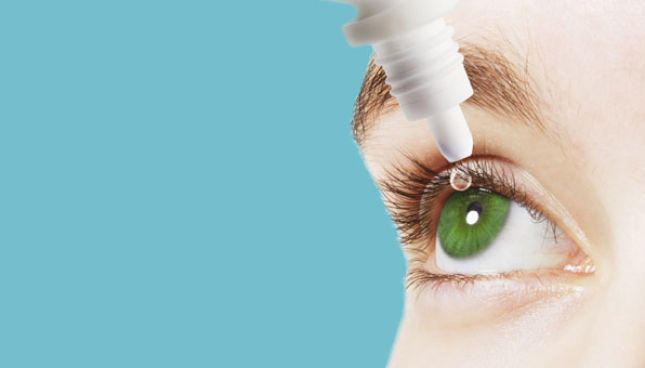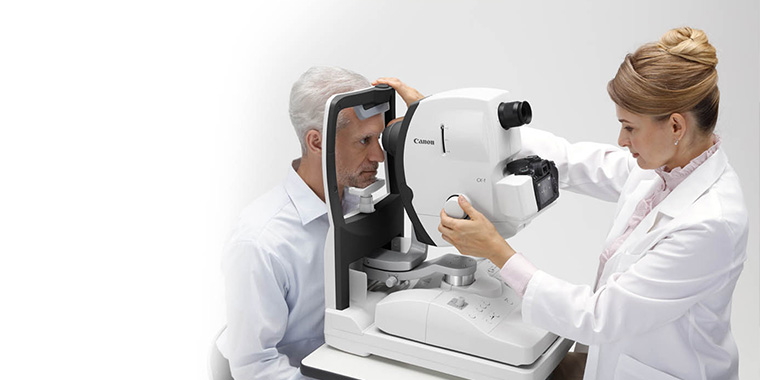Leading Cardiologist Andalusia: Your Companion in Heart Health
Leading Cardiologist Andalusia: Your Companion in Heart Health
Blog Article
Is Refractive Surgery Right for You? Factors to Think About for Better Eyecare
In the realm of eye care, the decision to undergo refractive surgical treatment is a crucial one that requires thoughtful consideration. From the details of one's ocular wellness to the complexities of everyday practices and individual expectations, each facet holds importance in the wider landscape of refractive surgery candidateship.
Eye Health And Wellness Analysis
When considering refractive surgical procedure, a comprehensive eye wellness assessment is important to evaluate the suitability of the procedure for each person. eye doctors in andalusia. This evaluation involves a collection of assessments and tests carried out by an eye treatment professional to determine the overall health of the eyes, the presence of any kind of underlying problems, and the security of the refractive error
During the assessment, different elements are considered, such as the client's case history, existing eye prescription, corneal density, pupil dimension, and tear movie top quality. These assessments help to determine any kind of contraindications to refractive surgery, such as corneal abnormalities, cataracts, or untreated eye infections. In addition, the examination aids to take care of individual expectations concerning the potential results of the surgical procedure based on their special eye attributes.
Inevitably, the eye health and wellness examination is vital in making certain the safety and performance of refractive surgical procedure, as it gives useful insights right into the person's eye wellness condition and assists establish the most suitable treatment choices for accomplishing ideal visual end results. (cardiologist andalusia)
Way Of Living Evaluation
A thorough way of life assessment is indispensable in figuring out the suitability of refractive surgery for an individual's aesthetic adjustment requirements. Way of living factors such as line of work, hobbies, and day-to-day tasks play a crucial function in the decision-making process regarding refractive surgical procedure.
Moreover, way of living behaviors such as sporting activities engagement, outdoor activities, or even skin care routines can affect the recovery procedure and general success of refractive surgical treatment. Individuals who engage in call sporting activities may need to take added safety measures to secure their eyes throughout the healing period. Additionally, individuals with considerable sunlight exposure may call for extra post-operative like protect against problems. By carrying out a comprehensive lifestyle evaluation, eye treatment experts can tailor their referrals and therapy plans to meet the one-of-a-kind needs of each patient, inevitably leading to enhanced visual results and contentment.
Expectation Placement

Individuals require to comprehend that while lots of people accomplish 20/20 vision or far better following refractive surgery, some might still require glasses for specific tasks like analysis or driving at night. Handling these assumptions helps protect against frustration and dissatisfaction post-surgery, leading to a much more positive overall experience for the patient.
Danger Evaluation

Variables that may boost the threat of problems consist of age, particular medical problems like autoimmune conditions, unstable vision prescription, slim corneas, and impractical patient expectations. In addition, choosing a competent and seasoned surgeon, following pre and post-operative care guidelines diligently, and disclosing any type of pertinent case history can assist alleviate threats.
To decrease the likelihood of problems, ophthalmologists perform extensive pre-operative examinations to recognize any kind of contraindications to surgery. They also discuss the potential risks and benefits with clients during the examination procedure. By participating in open interaction and shared decision-making, both the person and the eye doctor can interact to identify if refractive surgical procedure is the appropriate selection based upon specific risk profiles and desired end results.
Examination Relevance
Taking into consideration the important function of notified decision-making in evaluating risks and possible difficulties in refractive surgical procedure, the appointment procedure holds considerable significance in guiding people in the direction of ideal outcomes. Throughout the assessment, the ophthalmologist assesses the patient's eye wellness, refractive mistakes, and overall viability for surgical treatment. This initial analysis is essential in identifying one of the most appropriate procedure for each and every individual, thinking about aspects such as corneal thickness, student size, and existing eye conditions.
In addition, the examination works as a chance for patients to review their expectations, worries, and any inquiries they might have concerning the surgical procedure. Clear communication in between the specialist and the individual is vital to ensure sensible expectations and a complete understanding of the possible dangers and benefits entailed.
Furthermore, the assessment permits the cosmetic surgeon to clarify the different surgical alternatives readily available, their particular end results, and the post-operative care required. This detailed conversation empowers clients to make educated choices about their eye treatment, bring about better fulfillment and end results my company post-surgery.
Verdict
Finally, individuals thinking about refractive surgical procedure ought to undertake a comprehensive eye health and wellness examination, analyze their way of living habits, align their expectations with potential results, assess the affiliated risks, and prioritize consultations with eye care professionals. These factors play a vital function in figuring out the viability of refractive surgical procedure for each and every person, making sure ideal results and fulfillment with the procedure.
Clients thinking about refractive surgical procedure often have high assumptions pertaining to the results, expecting perfect vision without the need for glasses or call lenses. While refractive surgical procedure can considerably enhance vision and decrease dependency on aesthetic help, it is important for clients to recognize that outcomes may differ based on specific elements such as the level of refractive error, corneal thickness, and total eye health and wellness.
By engaging in open interaction and shared decision-making, both the eye doctor and the person can work with each other to identify if refractive surgery is the appropriate option based on individual danger profiles and desired end results.
Thinking about the critical function of informed decision-making in analyzing dangers and possible problems in refractive surgical procedure, the appointment process holds substantial value in guiding individuals in the direction of ideal end results. During the appointment, the eye doctor reviews the person's eye health and wellness, refractive errors, and find out overall suitability for surgical treatment.
Report this page